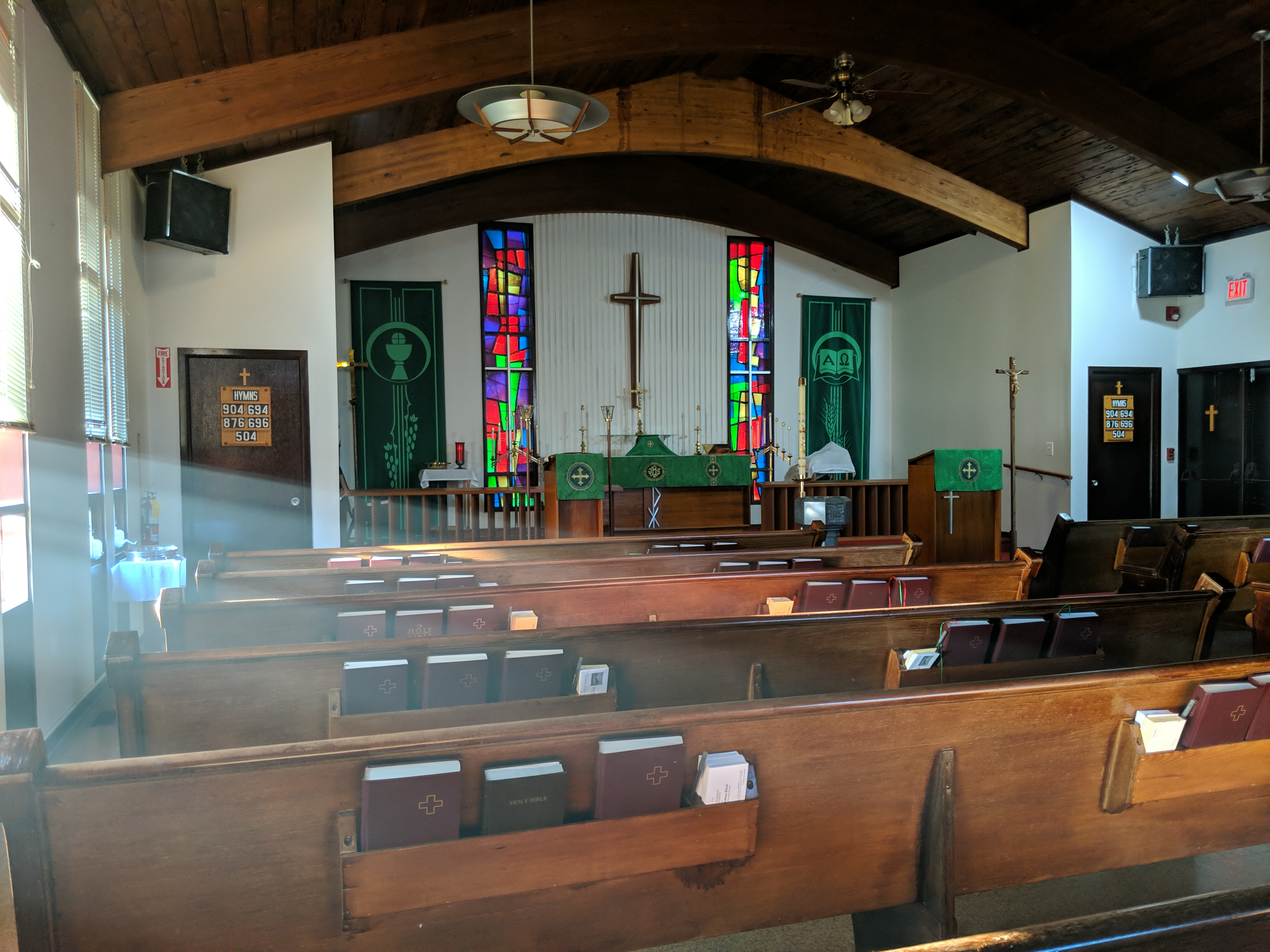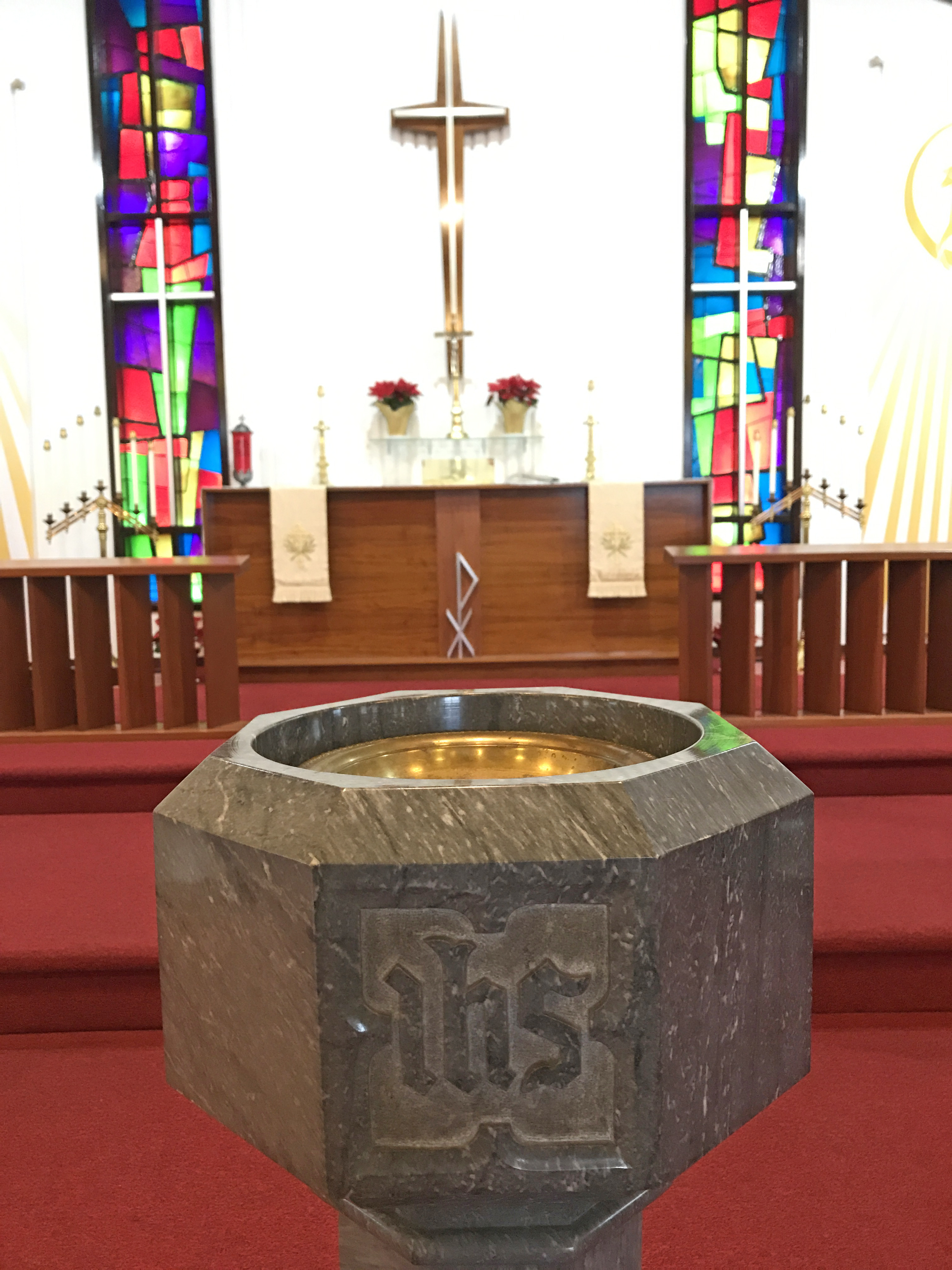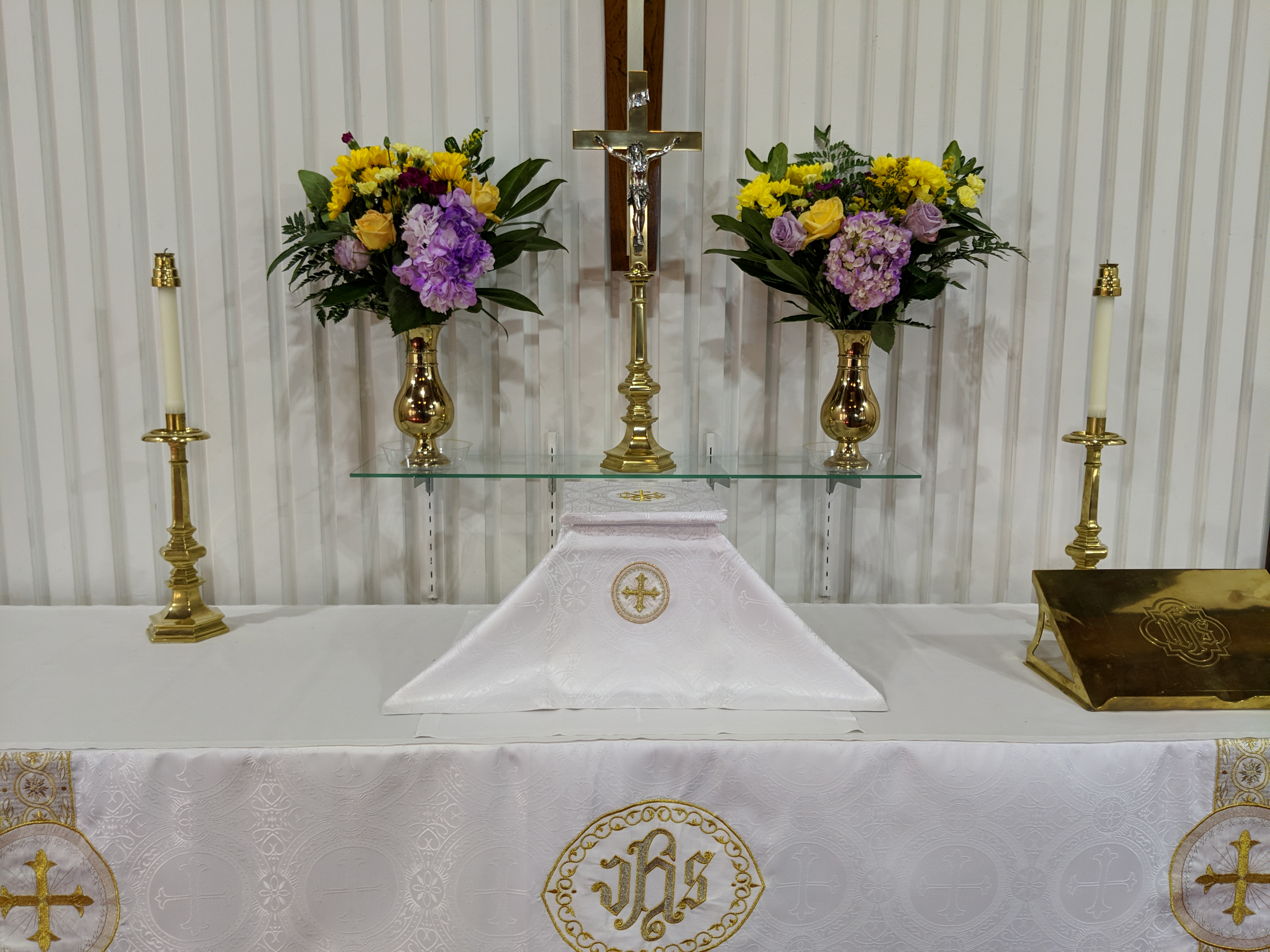(Transcribed by TurboScribe.ai.)
In the name of the Father, and of the Son, and of the Holy Spirit, every present generation, in its present, bears the responsibility, yes, even the privilege, of establishing a godly legacy for those who follow. This means, of course, that life itself takes effort. Effort to cultivate joy it takes.
It takes effort to grow stronger. It takes effort to stand firm. It’s only the flesh that wants to sit and to receive all good things without any effort, without putting anything forth to show the value of what is sought to be gained.
Life also takes shared effort, meaning there is community. There are other people in this world, as we gather with each other today, to see that there is a sharing effort in living together in human community, as God himself has shown, obviously, in his command to love God and to love your neighbor as yourself. He intends us to be neighborly.
This also means that life takes shared burdens, for most of them occur and are best shared when they happen very near to us. It is the burdens in each other’s lives that are best shared by those who are nearby to pick you up, to pray for you, to help you, as God has placed each of you in each other’s lives for that very reason. Yet our modern age does stretch burdens, even stretches their relief over many miles, many states, even countries at times.
For we have great info and great burdens shared, considering especially with how far away some of us do come to be among the community that we belong to. We must toil then together, so that we may together seek fruitfulness from a landscape that is laden with thorns and thistles, elections and division, wars and rumors of wars, disease and death, hurricanes, tornadoes, and floods. We need each other.
God gives us each other, just as he gave to the paralytic the guys carrying him there in Matthew 9, if you have heard. For he could not have gone to Jesus himself, being no longer in control or not in control at all of his own motor functions. He was confined to a bed.
The guys carrying the paralytic, they give even physical examples for us in lives of sharing one another’s burdens, in lives sharing another life’s burdens, is what they were doing. They were doing so in the midst of a chaotic world that you, beloved, are very familiar with. Their faith is great.
Their wisdom and acting in the faith is great as well. For they brought the paralytic to Jesus, seeking help. They go to the Lord in the midst of chaos, in the midst of being paralyzed, in the midst of all the churning that this world is.
They go to the one who is the Lord of goodness, the one who is the Lord of order, the one who is able and does gladly restore good things. Their example is great for us. It is imperative for us, for us to follow in seeking the Lord on behalf of one another, indeed, physically, as we are able.
For it exhibits care for their beloved paralytic. It exhibits care for him in body and in soul. True faith gets involved in the lives of others for the purpose of sharing burdens, for sharing efforts, yes, even for sharing sorrows, and most indeed for sharing joys.
We have joy in the Lord to share together. James 2 teaches us, what does it profit, my brethren, if someone says he has faith but does not have works? Can faith save him? If a brother or sister is naked and destitute of daily food, and one of you says to them, depart in peace, be warmed and filled, but you do not give them the things which are needed for the body, what does it profit? Thus also faith by itself, if it does not have works, is dead. This is why when Jesus saw their faith, the faith of those doing the good work of bringing the paralytic to Jesus, that he saw their faith and said to the paralytic, oh, these beautiful words, son, be of good cheer, your sins are forgiven you.
Imagine if he would have stopped right there, if he did nothing else, yea, perceived the scribes, their hearts, the evil in it and what they think, and their disconnect between, while he’s forgiving sins, could it be that he is God? Amen, it is true. True living faith cares about the physical well-being indeed of the neighbor, especially the neighbor within the household of faith, as well as the neighbor’s forgiveness and the neighbor’s faith. Take note of how absent this text is of any specific request by or on behalf of the paralytic.
Neither him nor those carrying him to Jesus say a word. They say nothing to him. They simply come.
They bring him. They don’t even say, Lord, have mercy, as we have seen in other accounts as Jesus passed by. Son of David, have mercy on me.
Lord, have mercy. Lord, heal. Lord, give.
They say none of it, not even the Kyrie, not even Lord, have mercy. Yet, still they show, as he does, that they’ve come to the right place, that he is the Lord of mercy, that he is merciful. And what does he do? He speaks.
He speaks his words that indeed only can be spoken by God’s authority. Your sins are forgiven you. Words that cause angels and archangels and all the company of heaven to shout and sing with joy.
Let us make it the same here among us who belong to this same company. For we have identical, capital C calls, himself to rejoice at the forgiveness of sins. True faith tends to the evident physical needs that are right in front of our faces.
Indeed, faith in action, needs that God shows to us, that he himself ordains to be right in front of us so that we can physically do something about them. Yet the greater gift is always what Jesus here bestows, first and foremost, that which can’t be seen without looking at our Savior upon the tree. Forgiveness.
Is that what we believe? That in all that can be given or all that can be asked for from God Almighty, that if he were to only give us forgiveness of sins, that he has given us everything, that he has given us the greatest thing that could be given? It is that for which he died for. God Almighty bled so that you have forgiveness. Indeed, one day that forgiveness will have the fruit in the resurrection of a body that doesn’t break anymore, tears that do not flow any longer, pain, anguish, disasters.
But what is the precursor to all this? What is the greater gift? What is the greatest gift? Indeed, that is what he calls us to gather around, to shout with joy for, to be contented, to be glad of. Your sins are forgiven you. Indeed, the true physical need is neglected by us when we are in a position in time and place to help.
Let us not disconnect the physical from the spiritual. But what about when things happen that are far beyond our abilities? These things, even near or far from us, these things exist far more than we let ourself believe. We are not as able as we think we are to steer the things of this world, to be omnipotent, omniscient, omnipresent, the way that the Lord Almighty is for our good.
Yet here, even in the midst of all this, to whom has God chosen to give his treasures, the very treasures of heaven, the very treasures of faith? It is to you, beloved. Those with faith in Christ possess the treasures of heaven which equip every Christian to love and serve one another far beyond earthly capacity. Understand this, that when your resources are limited in your person, in your finances, in the things that are of this world, you already possess so much from God himself to wield on behalf of one another in love, in prayer, in service, in caring.
Indeed, we help each other and we help by serving our neighbor faithfully in spiritual needs in addition to physical needs. We help specifically by bringing them to Jesus. It doesn’t mean dragging them by the hair because they keep turning down your invitation to church.
It means you take them to Jesus as you pray for them during the week. Continue to pray on and on and on because prayer is not bound as we are by distance, for our God is everywhere. Prayer is not bound by earthly wealth, for all things are his already.
He steadily places needs for prayer right before us so that we make good practice, exercise good strong faith, and to make use of his throne of grace, encouraged and enabled by him to always come boldly to that throne of grace that we may obtain mercy and find grace to help in time of need. Oh beloved, we possess so much that we can yield for the good of one another in body and soul. For when you pray for one another, it doesn’t only have spiritual benefits.
God loves people as he made them, body and soul. And so when you pray for one another, he takes all the person into account. Indeed, this is most certainly true.
We have everyday needs in our lives that are put right before us when we learn about, care about, pay attention to one another. Every week in our church’s prayer list as we bear one another’s burdens and for those whom we love collectively, and together with one voice, spoken for many, lift up these specific names and people to our Savior, carrying them to him. This is a mighty act, a mighty godly act.
The prayers here and the prayers that you pray at home, they ascend as a pleasing aroma before your Father in heaven. He is pleased to hear and to answer them all. And at every word of tragedy and need among us, we have those opportunities, much, plenty of opportunity that God gives us to pray for one another.
As we pray for our daily bread, for their daily bread, again things our flesh doesn’t want to do because it just wants to be fed without feeding, to be served without serving, to live ironically without truly living. Because to share efforts, to share burdens, is the life that God gives, that he places before us. Instead, what we shall do is we shall pray as God leads us.
We shall pray that he leads us to realize that he gives daily bread to all, and we ask that he would cause us to realize this and to receive our daily bread with thanksgiving. So the legacy left by a faithful life that serves others in body and soul is one that lives in the joy of Christ’s ways, in the joy of life led by his Spirit, in the joy of life that seeks the mind of Christ to be our own, that seeks his will in all things that he places before us. A faithful life strives to lay hold of confidence, contentment, and peace in the Lord Jesus.
Content, confident, seeking him out as he is our example, our Lord himself, to be confident because that faith trusts that any good work earns us nothing. We are not doing it for pay, to earn our salvation. Our good work earns us nothing in God’s eyes, but is itself a shining light before others that they may glorify your Father in heaven and themselves gain confidence in their Savior, for he bled and died for all.
A faithful life strives to be content, to accept what God gives because that faith trusts our Father in heaven to always be good, to always be good to us and to give us what we need, even when what we need is more consideration and love for one another, or if what he sees fit to give is a disruption of life in order to wake us up and to be strengthened and deepened in our faith in him. A faithful life strives for peace, peace that it has, but it strives to lay hold of it, to make it its own, to live in peace as we pray because that faith trusts that even if the Lord Jesus withholds or takes away things in life, that he will not withhold forgiveness from those who desire it. Therefore, let us leave a legacy of joy rooted in Christ, rooted in his grace, rooted in his forgiveness above all things.
Be of good cheer. Your sins are forgiven you. In Jesus’ name.
(Transcribed by TurboScribe.ai.)















Comments are closed, but trackbacks and pingbacks are open.